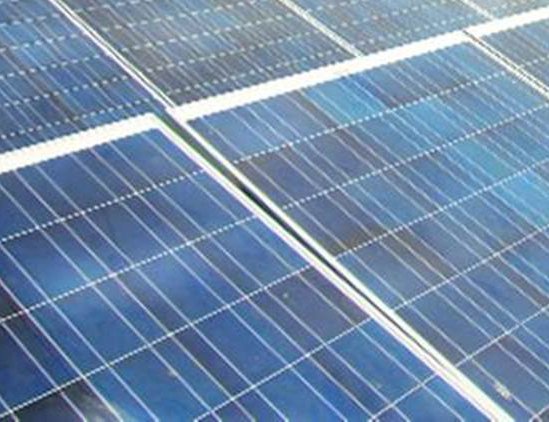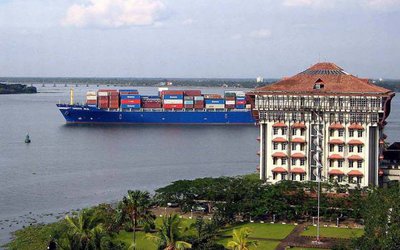
After the remarkable accomplishment of all the elections and
appointment of the provincial chiefs, Nepal is poised to start its fresh
journey toward full-fledged federal democratic republic. KP Sharma Oli is most likely to return to the
helm. But, yet in this unpredictable political atmosphere, no matter whether
comrade Prachanda or Oli ends up sitting
on the iron throne, is believed to be close to China, according to some media
hype - especially Indian. But as before, is Nepal going to seek support only for
Rail (Train) and Tel (Petroleum oil) or are there anything more we should seek
from our northern neighbor? Oli, just after the conclusion of central and
provincial parliamentary polls, signaled Chinese train as one of his top
priority by a surprise visit to border. But in this changing context, the prime
minister-in-waiting should seek support in the realm of clean energy as well.
The next prime minister should be aware of the fact that our dependency on
India for energy, including electricity, is increasing despite our knowledge
that India used energy, petroleum, as a preferred tool during the trade
embargo. And of course, depending on India for our national energy consumption
may be more chaotic if there happened to be another blockade in the future too,
which we cannot completely deny as well.
Thus, the next prime minister should be serious on making Nepal an energy self-sufficient nation. Blockade, imposed by India shortly after we promulgated our constitution in 2015, taught us several lessons; we are require to be self-reliant in energy we consume is the crucial one. Therefore, as a fledgling resource economist, I was contained when I caught up a news few weeks ago. Under the auspices of the Asian Development Bank (ADB), Nepal got its largest wind-solar hybrid power system in Hariharpurgadi, Sindhuli. According to ADB, the system - which yields 110 kilowatt-hours (kWh) of energy per day - is more than enough to satisfy the energy demand of local people, which is only 87 kWh per day. Similarly, Envipower Energy and Fertilizer Pvt Ltd, Nepal recently started commercially producing bottled compressed natural gas (CNG), a substitute of LPG gas, in Nawalparasi. It uses locally available organic materials - like cow dung, agricultural products and waste, waste food and press mud as raw materials and produces 2 tonnes of cooking gas daily.
But such scant efforts are not enough. For the purpose of building energy self-supporting nation, we should be able to pursue clean energy diplomacy more aggressively because we have seen blockade as a most preferred tool of Indian hegemony several times, even during the 14 chaotic months of 1989-1990.
Clean energy is expected to be the prime energy source to drive future’s economy. Clean energy is clean and does not cause any adverse side-effects too. So, many countries are serious about research, innovation and development in the realm of green energy. Of course, this brings an unprecedented opportunity to Nepal as well to boost up its clean energy ambitions.
We should pursue clean energy diplomacy to diversify our energy sources and its market. Today, we need not only energy, but the clean one. To reduce our dependence on India, Chinese government is pursuing different activities in strategic manner. Although the Chinese government may have their own interest behind assisting us, but what matters to us is whether they are in our national interest or not. And in this case, certainly these activities are in our favor. They are assisting our government to turn Singha Darbar into Solar Darbar. Lighting up our main administrative center with renewable energy gives a strong message to the global community as well about how serious we are toward the sustainability of this planet.
Today, we have Singha Darbar in each local bodies, not just in Kathmandu, and why not to light up each of those Darbars with solar, wind or some other form of clean energy within the tenure of this elected body? It may sound overly ambitious, but it's high time for us to be ambitious while setting our clean energy goals. If the Chinese leaders were not ambitious some 40 years ago, they would not have been in the modern and mighty China today. So, getting technical know-how from our neighbors is quite important and therefore, clean energy diplomacy is crucial.
Our northern neighbor is the global leader in renewable energy. They have already announced to invest 360 billion dollars in renewable energy by 2020, which is the highest investment in the contemporary world. By 2020, the country aims to install 340 GW of hydropower, 200 GW of wind, 120 GW of solar power, as well as 58 GW of nuclear capacity and 15 GW of biogas. But the interesting thing is they achieved their solar energy target 2020 three years earlier. Therefore, the world is mesmerised by the efficient way they perform their work. In addition to developing solar vehicles, solar-planes, they recently opened up the world’s first solar highway as well, which can generate 1 million kilowatt-hours of power per year. These achievements are marvellous, aren’t they?
Till today, China - in spite of being our friendly neighbor - has been treated like a distant one. But things should no longer be that way. Policy makers, therefore, should delicately draft the policies to tap the advantages that we can get from China. Local and nascent provincial bodies should be very committed for renewable energy and they should be capable enough to reach out national and international agencies which can assist for their cause, like we generally notice in the USA. Similarly, our government and the policy makers should facilitate Nepalese educational institutes and the universities as well to link up with the ongoing researches, innovations and development in the field of clean energy in China. Their universities are active in Nepal like never before and hence linking up our universities with theirs is easier than before.
After let’s say 5 to 10 years, we want to install renewable
energy technologies in the streets of our cities designed and developed independently by some students and
professors at our own universities. We cannot always afford to buy things from
others. To make this day come true, we
need to adopt clean energy diplomacy which is urgent if we are responsible for
our future generations, the mother earth and do not want to be affected by
another trade embargo in case of any in the future. Therefore, we will be
cautiously watching the diplomacy of our next prime minister. We want him dare
to look north also and pursue clean energy diplomacy for the energy security of
the country.













